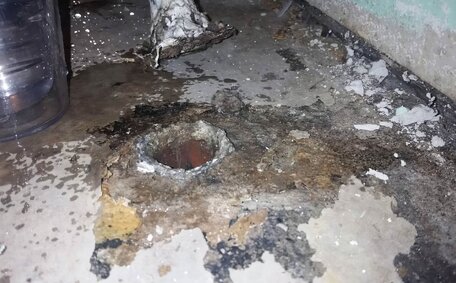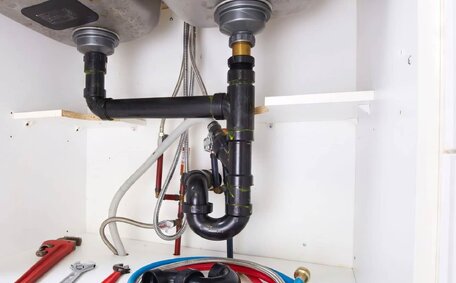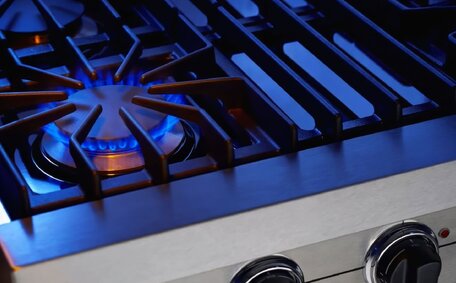Introduction: Why Hot Water System Efficiency Matters
An efficient hot water system, whether gas or electric, is essential for any home, influencing daily comfort, energy bills, and greenhouse gas emissions. It impacts your energy bill, greenhouse gas emissions, and even the performance of your appliances that use hot water.
Malfunctioning systems use excessive energy, often heating more than necessary and allowing heat to escape, leading to increased usage. Insulating pipes and lowering thermostat settings can enhance comfort and significantly reduce energy consumption.
Recalibrating and enhancing your system’s efficiency to get your household in top condition should be a top priority. A properly calibrated unit saves money, reduces environmental impact, and ensures adequate hot water for your household.
How Hot Water Systems Work
Storage water heaters efficiently heat and maintain a supply of hot water for your home. Certain actions can be taken to ensure efficient hot water delivery:
- Storage tank: Stores heated water for on-demand usage. Can be glass-lined steel, stainless steel, or plastic.
- Heating elements: Electrical components dedicated to heating water, designed to either screw into the tank or be positioned underneath.
- Thermostat: Regulates temperature by shutting off the element when the set temperature is achieved.
- Anode rod: A metal rod that protects the tank from corrosion. Needs replacing every 5-8 years.
Turning on a hot water tap draws cold water into the tank’s bottom, displacing hot water to the fixtures as the element heats. Ensuring that temperatures reach higher than 60°C, the thermostat plays a critical role in eliminating Legionella bacteria.
A gas hot water system’s pilot flame is a significant household energy user. Hence, a streamlined system cuts down your energy costs, prompting less need to contact your energy provider about high usage.
Signs Your System Needs Recalibrating
There are a few key signs that your hot water system could benefit from recalibration:
- Fluctuating water temperature: When your water temperature is set too hot or too low, it’s time to consider adjusting the thermostat.
- Strange noises: Clanging, banging, or rumbling could indicate wear, sediment buildup, or other underlying issues.
- Discoloured water: Rusty, brown, or dirty water points to corrosion and the need to replace the anode rod.
- If you find that insufficient hot water disrupts your daily routine: Finding yourself running out hot water too quickly, even during low-usage times, signals improper heating.
- High energy bills: Spikes may show your system is working overtime and inefficiently.
Addressing issues with your hot water system early can reduce operating costs and environmental impact. A correctly calibrated system provides reliable hot water while using the minimal energy necessary.
If you find no solution, consult a local licensed plumber, as detailed in the following section. They can properly assess your system and suggest tailored solutions for optimising efficiency.
Checking and Adjusting Temperature Settings
It’s important to know how to check and adjust the temperature settings on your hot water system. Here’s how:
- Learn how to locate and adjust the control knob fully on your hot water system. This dial-like feature manages the temperature.
- Turn on the hot water tap nearest to the system and let it run for a few minutes.
- Use a digital thermometer to test the water’s temperature. Insert the probe under the running water. It should read at least 60°C to prevent Legionella bacteria growth.
- If the temperature is below 60°C and relighting the pilot is necessary, refer to the section on the reset button. After making adjustments, wait 5 minutes and test again, tweaking until the required temperature is met.
- Once the 60°C minimum is reached, consider decreasing the thermostat by 5 degrees Celsius to potentially lower your bills. This energy-saving adjustment can decrease your energy bills by 10-15%, ensuring safe and adequate hot water supply.
Be very careful when working with a hot water system, as the stored water is extremely hot, and you may need to seek plumber professional advice. If there is still no hot water or you’re not confident making adjustments, seek professional advice from a local licensed plumber.
Insulating Your Water Heater and Pipes
Insulating your hot water tank and pipes, with advice from a licensed plumber, minimises heat loss and maintains sufficient hot water for your needs. Specially designed insulation wraps or custom-cut fibreglass batts can be used to snugly fit around the tank, valves, and exposed pipes.
Before maintenance, ensure the circuit breaker for your heater is off and cover all areas without leaving gaps.
Proceed to delicately wrap insulation around the hot water tank and pipes, securing them in place with sturdy aluminium duct tape. Minimising heat loss may require two or three layers of insulation.
Take extra care not to cover the thermostat, pressure relief valve, drain cock, anode rod access panel, or any junctions or joints needing maintenance access. Also be aware that most manufacturers don’t recommend insulating the gas control valve portion of gas storage water heaters.
Added insulation can cut heat loss from hot water pipes by 25-45%, boosting efficiency and reducing energy usage. By retaining heat in the tank, this method saves the energy required for heating, reflecting as energy bill savings.
Installing Water-Saving Fixtures
Water-efficient fittings are highly effective at cutting down daily water consumption. These fixtures can also reduce amount of water flow, meaning less hot water gets used in your house without compromising water pressure.
Low flow shower heads can restrict water usage to 9 litres per minute or less, in contrast to higher-flow traditional showerheads. Switching to a Water Efficiency Labelling Scheme (WELS) 3-star rated showerhead can conserve water by 30% or more.
Faucet aerators mix air into the water stream, reducing water use while maintaining effectiveness. WELS 3-star aerators use around 75% less water than conventional options.
When installing water savers, check compatibility with your existing plumbing. Your plumber can provide guidance on the best options tailored to your home’s plumbing requirements.
Alongside the environmental benefits, installing these inexpensive fixtures cuts water heating costs and reduces energy usage, saving money on bills.
Routine Maintenance for Efficiency
Routine servicing by a local plumber secures a constant gas supply, top performance, and greater efficiency for your hot water system. Essential routine actions include:
- Draining and flushing: Annually draining a bucket of water from the tank bottom is crucial for removing sediment that impairs heating efficiency.
- Inspecting parts: Check the inlet valve, fittings and the anode rod for wear/corrosion, replacing as needed.
- Testing and adjustments: Examine elements and thermostat operation. Adjust thermostat to optimise temperature.
- Pipe inspection: Check for insulation damage or heat leaks from pipes. Re-wrap or patch insulation as required.
Preventative upkeep boosts efficiency by guaranteeing your system operates as designed, preventing wasteful blockages or faults. It also maximises operational life, avoiding the costs of premature replacements.
An annual check-up from a licensed professional is also recommended. They can thoroughly inspect all components and catch small issues before they become problems. Keep your owner’s manual handy for suggested maintenance schedules.
When to Call a Professional
While some hot water system maintenance and recalibration tasks are suitable for DIY, it’s wise to contact a professional plumber in certain situations.
The licenced experts at Bankstown Plumbing can provide prompt assistance if you experience:
- Total no hot water failure or continuous loss of hot water
- Issues with how to check and relight pilot light, or encountering ignition problems
- Leaks in the gas line, strange noises or concerning odours which can cause your hot issues within the system
- Displays of error codes on a continuous flow unit
- Discoloured or contaminated water being supplied
For immediate hot water issues, our skilled technicians can swiftly diagnose and rectify problems. We carry out repairs on all brands and models.
For expert advice or to schedule a service, get in touch with Bankstown Plumbing at 1300 349 338 or jobs@bankstownplumbingservices.com.au. Our team is ready to assist 24/7.
Upgrading to a New Efficient System
As technology improves, Upgrading to a new hot model, whether it’s a gas electric hot water heater or another type, can notably cut down energy usage and costs. Electric hot water systems can include options like storage water heaters and solar-powered systems, which are popular to consider.
Heat Pump Water Heaters
Heat pumps, which fall under the category of electric hot water heater, utilise minimal electricity to extract ambient heat for water heating. This makes them up to 300% more energy efficient than conventional electric hot resistance storage units. A heat pump system can cut water heating bills by half or more.
Solar Water Heaters
Solar water heating systems harness the sun’s thermal energy using roof-mounted collectors. The system works efficiently even on cloudy days and supplies a continuous source of free hot water whenever the sun is shining, with minimal ongoing costs. Solar heaters can reduce conventional water heating bills by 50-85%.
If considering an electric water system upgrade, a licensed plumber can recommend the most energy-efficient option for your home. New systems often attract government rebates as well, making upgrades even more affordable.
Conclusion: Getting the Most from Your Hot Water
Efficient and well-maintained hot water systems offer dependable operation and curtail energy use and costs. Taking simple recalibration steps like insulation, thermostat adjustments, and installing water-saving fixtures yields worthwhile savings and environmental benefits.
Regular maintenance helps to check see efficiency levels by clearing sediment buildup, testing components, and replacing worn parts as needed. While minor tasks are doable yourself, complex issues warrant contacting licenced professionals like Bankstown Plumbing for prompt solutions.
Ultimately, monitoring your system and addressing problems early is key to maximising efficiency. And upgrading older heaters to newer energy efficient models can dramatically cut water heating bills. Contact Bankstown Plumbing on 1300 349 338 or jobs@bankstownplumbingservices.com.au for personalised advice on optimising your hot water system.






